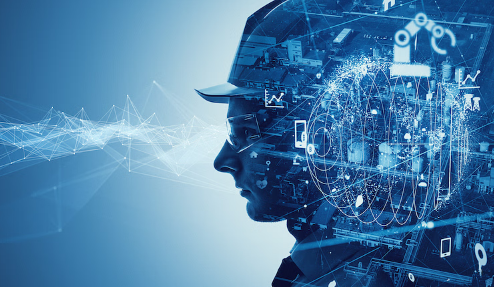Decentralized Finance (DeFi) has witnessed explosive growth over the past few years, revolutionizing how we interact with financial systems. However, for DeFi to reach mainstream adoption, certain challenges need to be addressed. One of the key components driving this evolution is the use of oracles. Oracles serve as bridges between the blockchain and the real world, enabling smart contracts to interact with external data sources. In this article, we will explore how oracles will push DeFi projects into the mainstream by incorporating data from IoT devices, enhancing privacy and security, and allowing for more standardization and interoperability.
Understanding Oracles in DeFi
Oracles are third-party services that provide smart contracts with external data, enabling them to execute based on real-world conditions. Without oracles, smart contracts would be limited to the data available on the blockchain, severely restricting their functionality. Oracles can pull data from various sources such as APIs, web pages, and even other blockchains, making them crucial for DeFi applications that require accurate and timely information. This external data can include anything from weather reports and sports scores to stock prices and market trends, significantly broadening the scope of what smart contracts can achieve.
There are different types of oracles, each serving unique purposes within the DeFi ecosystem. Software oracles handle data from online sources, hardware oracles gather information from physical devices like IoT sensors, and consensus-based oracles rely on multiple data sources to ensure accuracy and reliability. Additionally, decentralized oracles like Chainlink use a network of nodes to fetch and verify data, enhancing security by eliminating single points of failure. The integration of these diverse oracles into DeFi platforms ensures that smart contracts operate with reliable real-world data, ultimately driving the evolution and mainstream adoption of decentralized finance.
Expanding Oracles to Incorporate IoT Data
The Internet of Things (IoT) represents a network of interconnected devices that communicate and exchange data with each other. The integration of IoT data into DeFi through oracles can unlock a multitude of new use cases and opportunities. Here are a few examples:
Supply Chain Management
Oracles can fetch real-time data from IoT devices embedded in shipping containers, providing accurate information about the location, temperature, and condition of goods. This can be used to automate payments and settlements in DeFi platforms when certain conditions are met, such as the arrival of goods at a destination or the maintenance of specific temperature ranges during transit.
Environmental Monitoring
IoT devices used for environmental monitoring can feed data into DeFi platforms to trigger smart contracts related to environmental impact bonds, carbon credits, and sustainable investments. For instance, a smart contract could automatically issue carbon credits based on the amount of CO2 reduced as reported by IoT sensors.
Insurance
In the insurance sector, oracles can use data from IoT devices to automate claims processing. For example, smart contracts can be triggered by data from car sensors in the event of an accident, speeding up the claims process and reducing fraud.
Enhancing Privacy and Security
Privacy and security are paramount concerns for DeFi users. Oracles play a vital role in enhancing these aspects by ensuring that the data used by smart contracts is reliable and tamper-proof.
Data Encryption
Oracles can incorporate advanced encryption methods to secure data transmission between external sources and the blockchain. This ensures that sensitive information, such as personal identification details or financial transactions, is protected from unauthorized access and tampering.
Zero-Knowledge Proofs
Oracles can leverage zero-knowledge proofs to provide data to smart contracts without revealing the actual data itself. This is particularly useful in scenarios where privacy is crucial, such as identity verification and confidential transactions. Zero-knowledge proofs enable oracles to validate information while keeping the underlying data private.
Decentralized Oracles
Decentralized oracles like Chainlink enhance security by eliminating single points of failure. They use multiple data sources and validators to ensure the accuracy and reliability of the information provided to smart contracts. This reduces the risk of data manipulation and enhances trust in DeFi applications, ultimately building deep customer connections by providing accurate, secure data for smart contracts.
Standardization and Interoperability
For DeFi to achieve mainstream adoption, there needs to be a level of standardization and interoperability across different platforms and networks. Oracles can play a significant role in achieving this goal.
Cross-Chain Compatibility
Oracles can facilitate communication between different blockchain networks, enabling cross-chain transactions and interoperability. This allows DeFi projects to expand their reach and integrate with various ecosystems, increasing their utility and user base.
Unified Data Standards
Oracles can help establish unified data standards for DeFi applications, ensuring that data from different sources is compatible and can be easily integrated. This standardization can simplify the development process, reduce errors, and enhance the overall user experience.
Regulatory Compliance
As DeFi projects seek to comply with regulatory requirements, oracles can provide the necessary data to ensure adherence to legal standards. For instance, oracles can deliver real-time market data to ensure that DeFi platforms comply with financial regulations related to trading and reporting.
Conclusion: The Future of DeFi Lies in Oracles
Oracles are set to play a pivotal role in pushing DeFi projects into the mainstream. By incorporating data from IoT devices, enhancing privacy and security, and promoting standardization and interoperability, oracles can unlock new possibilities for DeFi applications and drive widespread adoption.
As the technology continues to evolve, the importance of oracles in the DeFi landscape will only grow. Imagine a world where your smart home devices can autonomously manage your insurance claims or where environmental data automatically influences your investment portfolio. This is the future that oracles are building. By bridging the gap between the digital and physical worlds, oracles are not just enhancing DeFi; they are redefining the very foundation of decentralized finance.
The journey of DeFi to mainstream adoption is a marathon, not a sprint, but with the innovative use of oracles, the finish line is coming into clearer view. As we embrace these advancements, we move closer to a financial system that is more inclusive, transparent, and efficient. The integration of oracles represents a significant leap forward, ensuring that DeFi is not just a fleeting trend but a lasting paradigm shift in the world of finance.




